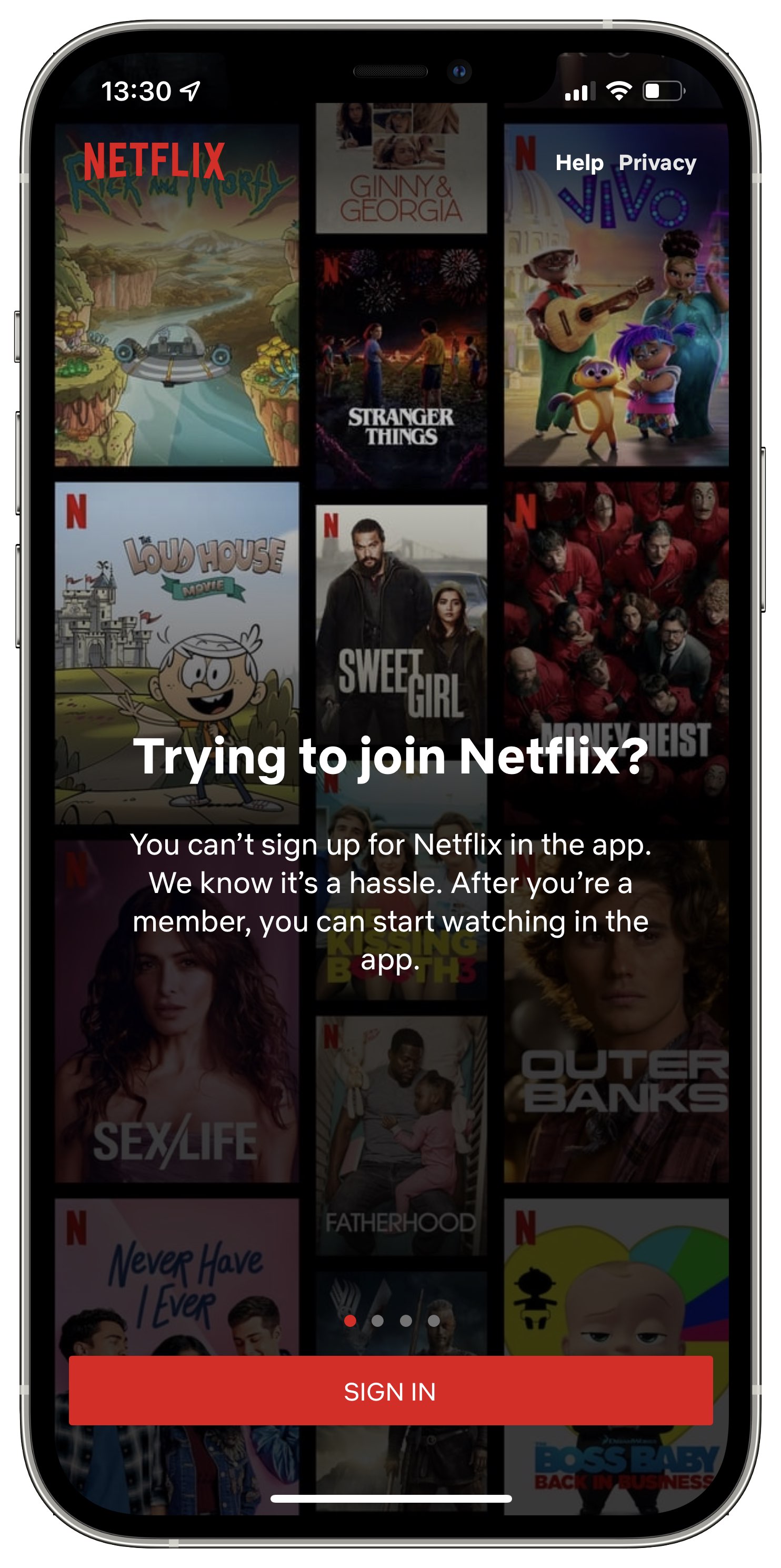Apple’s relented to antitrust pressure. All “reader” apps can now include a web link for customers to follow and sign up for an account or purchase a content subscription externally.
STORY HIGHLIGHTS:
- Apple will soon let all “reader” apps on App Store link to websites to sign up users
- The new rule affects apps that don’t make Apple any money anyways, like Netflix
- Reader apps provide access to previously purchased content or subscription
- The change is that the rule will now be applied to all reader apps on App Store
- As a result, Japan’s Fair Trade Commission has closed its investigation on this case

Apple to let all reader apps link to external websites
The not-so-unexpected change was announced in a post published on Apple Newsroom.
The new rule goes into effect in early 2022, though no firm date was given. The company will update its App Store guidelines for developers and review processes in due time. Apple defines reader apps as those apps that provide access to previously purchased content or content subscriptions for digital magazines, newspapers, books, audio, music and video.
Reader apps do not offer in-app digital goods and services for purchase.
The announcement says each reader app on App Store will be permitted to include a single in-app link to their website for customers to set up or manage an account or subscribe to content.
To ensure a safe and seamless user experience, the App Store’s guidelines require developers to sell digital services and subscriptions using Apple’s in-app payment system. Because developers of reader apps do not offer in-app digital goods and services for purchase, Apple agreed to let developers of these apps share a single link to their website to help users set up and manage their account.
The company says it will “help developers of reader apps protect users when they link them to an external website to make purchases.” Apple’s change of heart only affects reader apps.
There are just as many questions as answers:
– Does Apple still get to define “reader” app by fiat?
– Can apps explicitly mention payment or price or is that muzzled?
– One link – where does it go? Are there rules?https://t.co/KuKgj9dXuW— Dieter Bohn (@backlon) September 2, 2021
Other types of apps like games are still prohibited from including web links within the app.
Japan’s FTC closes its investigation
As a result of this change, Japan’s Fair Trade Commission (JFTC) has now announced closing its investigation on this case, writing the following on the official JFTC website:
During the JFTC’s investigation, Apple proposed to take measures such as revising the Guideline related to the alleged conduct above. As a result of the JFTC’s review on this proposal, the JFTC recognized it would eliminate the above-mentioned suspicion and decided to close the investigation on this case after the JFTC confirms the measure has been taken.
This comes after South Korea passed a bill stopping Apple and Google from forcing developers to exclusively use its own billing system to process in-app purchases. Although that decision has nothing to do with allowing side-loading and third-party App Stores, it will let developers like Epic Games use third-party payments for things like Fortnite content purchases.
Previously, external subscriptions for digital content were restricted to reader apps like Kindle and Netflix, as well as apps that sell physical goods like Amazon. However, reader apps still couldn’t take advantage of in-app web links nor tell the user about cheaper options within the app itself. Instead, they would email folks about payment options that bypass Apple’s fees.

In other words, developers who wish to bypass App’s own billing system and implement a third-party payment system will soon be permitted to do so, bypassing Apple’s fees altogether. The South Koran ruling, however, does not restrict in any way Apple’s thirty percent cut that the company takes on any apps and games purchased on App Store.
Those remain in place, for the time being.
How it was before
Reader apps are basically clients that let the user access content they purchased or subscribed to before, outside of the app. Netflix is a good example of a reader app.
Before today, Apple had an anti-competitive rule in place that forbids developers from adding links to reader apps that people could follow to an external website to, say, sign up for a new Netflix account outside of the app by providing their credit card number.

The user would launch Netflix on their iPhone and be greeted with this message:
Trying to join Netflix?
We can’t sign up for Netflix in the app. We know it’s a hassle. After you’ve a member, you can start watching in the app.
Sure, there’s a Sign In button on that same screen for those already subscribed to Netflix.
But what about those who are not yet members and are seeing this screen for the first time? Because of Apple’s rule, Netflix couldn’t put in a link and tell the user that they can follow it to sign up for the service on the Netflix website.
Good thing that this anti-competitive rule is soon going away, but it would be even better if all apps, not just reader ones, could send people to the web to sign them up externally.
As it stands now, apps like Fortnite will soon be allowed to use third-party billing to sell people virtual items but they still won’t be permitted to include an eternal link to inform people they can sign up through a website.